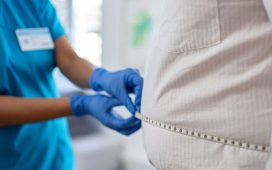Young people becoming addicted to ketamine is a national problem that is growing rapidly, a leading addiction psychiatrist has said.
Specialist ketamine clinics have recorded a surge over the past two years in the numbers of young people coming through their doors, many of whom have struggled to engage with mainstream treatments. NHS and private clinics have also reported significant rises.
Owen Bowden-Jones, a consultant psychiatrist and founder of the pioneering Club Drug clinic, said he had seen a definite increase in young people after “a pretty big lift off” in ketamine’s popularity, making the drug a national problem.
“My sense is the vast majority are using it to self-medicate for emotional distress. That would suggest to me they found a pharmacological short cut to managing their mental health,” he said, adding that this may reflect difficulties in accessing mental health services.
The number of people seeking treatment for ketamine addiction at NHS drug and alcohol services doubled between 2019 and 2023 from 1,140 to 2,211, the most recent data shows. The proportion of young people receiving substance misuse treatment for ketamine has increased from under 1% in 2015 to 6% in 2023.
Private clinics have also reported rises. The Priory has recorded increases, while UK Addiction Treatment said ketamine admission numbers had doubled from 198 in 2020 to 397 in 2023. Rehabs UK, which works in partnership with treatment clinics, received 4,000 inquiries in 2023, with ketamine representing 30% so far in 2024, up from 15% in 2023.
One new group of patients Bowden-Jones has observed is of young people who have experienced trauma using ketamine because its dissociative quality makes it a “brilliant emotional anaesthetic” and because there is a “lack of good quality trauma therapy available”.
This was Pagan’s experience. She started taking ketamine for fun with friends, then began using it alone “just to block everything out”. She soon found that “you have overpowering other emotions so you keep using more”. This escalated into injecting, and within a year she was severely ill, she said.
She has been left with life-changing health problems, including liver disease and nerve damage that has made it difficult to walk on one of her legs. “Nobody told me the amount of pain you would feel,” she said.
Bowden-Jones has also observed a recent increase in people injecting rather than sniffing. “It is also more harmful when you inject it, as every drug is.”
Bowden-Jones set up his clinic after noticing an increase in younger people whose drug addictions were not catered for by mainstream NHS services, which primarily serve older heroin and crack cocaine users.
“Young people are using different drugs to what our services are expert in,” he said. “Many young people wouldn’t dream of using heroin, it’s very clear in their minds that’s a highly dangerous, highly addictive drug to start on, and yet they’re coming to me using two to three grams of ketamine a day.”
He thinks drug treatment centres need to adapt and work more closely with mental health services, reversing a structure in which they are “funded separately, and don’t communicate well”, leaving people “caught in a systemic gap”. Without this support patients become “highly distressed and vulnerable and return to ketamine”.
Ketamine has been around for a long time, starting in the 1990s rave scene, said the director of DrugWise, Harry Shapiro, but the increase in people seeking addiction support is recent. “I think it’s partly probably a fallout from Covid,” he said, adding that it is “tough being young these days”.
after newsletter promotion
“I never did regard it as a party drug in the same way people think of it at festivals. It’s a very isolating kind of drug.”
Other specialist ketamine clinics, including Turning Point and a clinic in Bexley run by South London and Maudsley NHS Foundation Trust, have reported more young patients in the past three years.
Dr Irene Guerrini set up her clinic in Bexley in 2022 after noticing a “very unusual” increase in young people with ketamine addictions that left them “medically significantly unwell”, and finding that 7.8% of patients overall had problems with the drug.
The clinic offers peer support and specialist staff and works closely with mental health services and urologists, given that the drug can cause serious bladder problems. It is now being replicated in other greater London trusts, while Guerrini is sharing best practice with doctors in other regions.
Dr Mohammed Belal, a consultant urologist at Birmingham’s Queen Elizabeth hospital, said he had observed an explosion in ketamine bladder cases since 2019, and that this is spreading across the country.
Ketamine addicts respond well to treatment, but rolling out specialist services is a challenge, said Dr Emily Finch, a member of the Royal College of Psychiatrists addictions executive.
There is a shortage of addiction psychiatrists and funding is “particularly low and at risk”, she said, making it difficult to innovate, partly because addiction is a Cinderella service due to “a misperception that it’s people’s fault.”











